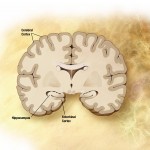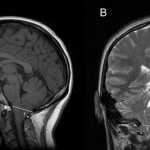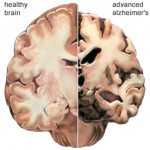 Alzheimer’s disease (AD) could be the next frontier for deep brain stimulation (DBS) therapy.
Alzheimer’s disease (AD) could be the next frontier for deep brain stimulation (DBS) therapy.
A small phase 1 pilot study showed that some patients with AD who received constant stimulation to the fornix — the principle outflow tract from the hippocampus — had increased hippocampal volume after 1 year.
There was also some evidence that this increased hippocampal volume correlated with cognitive benefit.



 The US Food and Drug Administration has approved an expanded indication for the rivastigmine transdermal system (Exelon Patch, Novartis Pharmaceuticals Corporation) to include patients with severe disease.
The US Food and Drug Administration has approved an expanded indication for the rivastigmine transdermal system (Exelon Patch, Novartis Pharmaceuticals Corporation) to include patients with severe disease.
 Regular exercise reduces the development of painful diabetic neuropathy in animals—apparently related to increased expression of a protective substance called “heat shock protein” 72 (Hsp72), reports an experimental study in the February issue of Anesthesia & Analgesia, official journal of the International Anesthesia Research Society (IARS).
Regular exercise reduces the development of painful diabetic neuropathy in animals—apparently related to increased expression of a protective substance called “heat shock protein” 72 (Hsp72), reports an experimental study in the February issue of Anesthesia & Analgesia, official journal of the International Anesthesia Research Society (IARS). The number of people with Alzheimer’s disease is expected to triple in the next 40 years, according to a new study published in the February 6, 2013, online issue of Neurology®, the medical journal of the
The number of people with Alzheimer’s disease is expected to triple in the next 40 years, according to a new study published in the February 6, 2013, online issue of Neurology®, the medical journal of the  ‘Brain pacemakers’ trialled as way of staving off memory loss from Alzheimer’s disease
‘Brain pacemakers’ trialled as way of staving off memory loss from Alzheimer’s disease